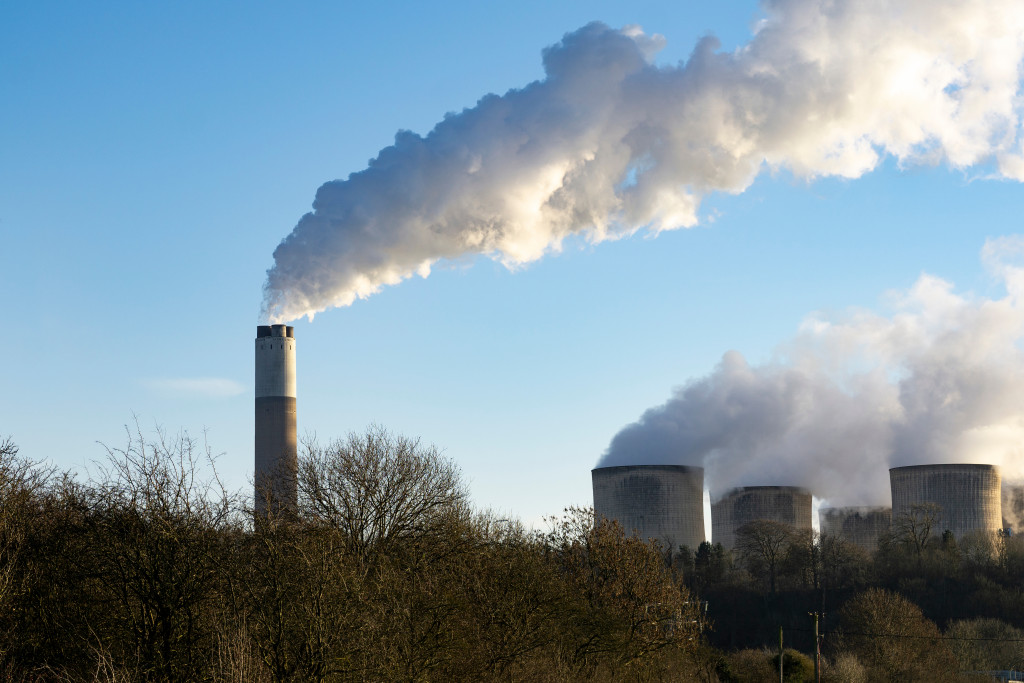- Air pollution is a major environmental concern that can have severe health consequences.
- Sources of air pollution include industrial processes, transportation, agricultural activities, and mining operations.
- Electric vehicles can reduce the air pollution created by transportation sources while using renewable energy sources can limit emissions from burning fossil fuels.
- Air pollution can cause respiratory issues, heart problems, and even cancer.
The air you breathe dramatically impacts your health, yet many don’t realize how much air pollution is affecting their families. Air pollution is a major environmental concern that continues to worsen in many places worldwide. It can have severe consequences for your health and well-being. Here’s a look at how air pollution affects you and your family’s health today.
Sources of Air Pollution
Air pollution comes from both natural and man-made sources. Here are some of the most common sources of air pollution:
Industrial Sources
Industrial sources refer to emissions created by industrial processes such as burning fossil fuels in power plants or factories. These emissions contain certain pollutants, such as sulfur dioxide and nitrogen oxides, which are released into the atmosphere when these fuels are burned. This air pollution can be particularly harmful to human health if it is not regulated correctly.

Transportation Sources
Transportation sources refer to emissions created by cars and trucks. When running, vehicles release pollutants such as carbon monoxide and nitrogen oxides into the atmosphere. While modern vehicles are much cleaner than past generations, they still contribute significantly to air pollution levels in many cities worldwide.
Agricultural Sources
Agricultural sources refer to emissions created by agricultural processes, such as animal husbandry and fertilizer use. For example, animals release ammonia into the atmosphere when they digest food, while fertilizers can produce nitrous oxide emissions that can contribute to air pollution levels. Burning crop stubble after harvest can also create dangerous levels of particulate matter in some areas.
Mining Sources
Mining sources refer to emissions from mining operations such as coal mining or oil extraction. These operations typically produce hazardous particulate matter that can accumulate in the atmosphere and lead to serious health issues for those exposed over long periods. Some mining operations may release other pollutants, such as mercury or arsenic, into the environment if not properly managed or regulated.
Health Effects of Air Pollution
Air pollution can have drastic effects on your health. Here are some common ways air pollution can affect you and your family’s health.

Respiratory Problems
Air pollution aggravates respiratory conditions such as asthma and COPD (Chronic Obstructive Pulmonary Disease). It can also cause lung inflammation, leading to irritation and difficulty breathing. In severe cases, it can even cause permanent damage. For this reason, people with existing respiratory issues need to be particularly mindful of air quality levels when deciding whether to go outside.
Heart Disease
Air pollutants can increase your risk for cardiovascular diseases such as hypertension, arrhythmia, coronary artery disease, congestive heart failure, and stroke. This is because air pollution triggers inflammation in the blood vessels, which leads to plaque buildup on the walls of arteries around the heart. This can lead to a blockage that restricts blood flow—which could potentially be deadly.
Cancer
Air pollution is also linked to various cancers, such as lung and bladder cancer. This is because air pollutants can damage the DNA in cells, eventually leading to mutations and uncontrolled cell growth. Air pollution can also harm the immune system and weaken its ability to fight off potential threats such as cancer.
Reducing Air Pollution
If you want to keep your family healthy, you’ll need to do your best to reduce air pollution. Here are ways to do that:
Invest in EVs
Transportation has been identified as one of the primary sources of air pollution. Investing in electric vehicles can be a great way to reduce your contribution to air pollution levels. Electric cars are powered by electricity and therefore do not emit any pollutants into the atmosphere. Additionally, because of improved EV battery life, you don’t have to worry about the range of your EV. they can easily travel hundreds of miles on a single charge.
Limit Burning Fossil Fuels
Burning fossil fuels releases pollutants into the atmosphere, harming your health and the environment. Limiting your use of them as much as possible is one way to reduce air pollution levels. Try using renewable energy sources such as solar or wind to power your home instead.
Support Cleaner Industries
Industries significantly impact air pollution levels, so you should try to support those committed to reducing their emissions. In addition, look for companies that use clean technologies and renewable energy sources in their operations, as these will help reduce the number of pollutants released into the atmosphere.
By taking steps to reduce air pollution, you can help protect your family from the dangers that come with it. Taking simple actions can go a long way towards improving air quality—and ultimately saving your health in the long run. So don’t wait any longer—take action today!




